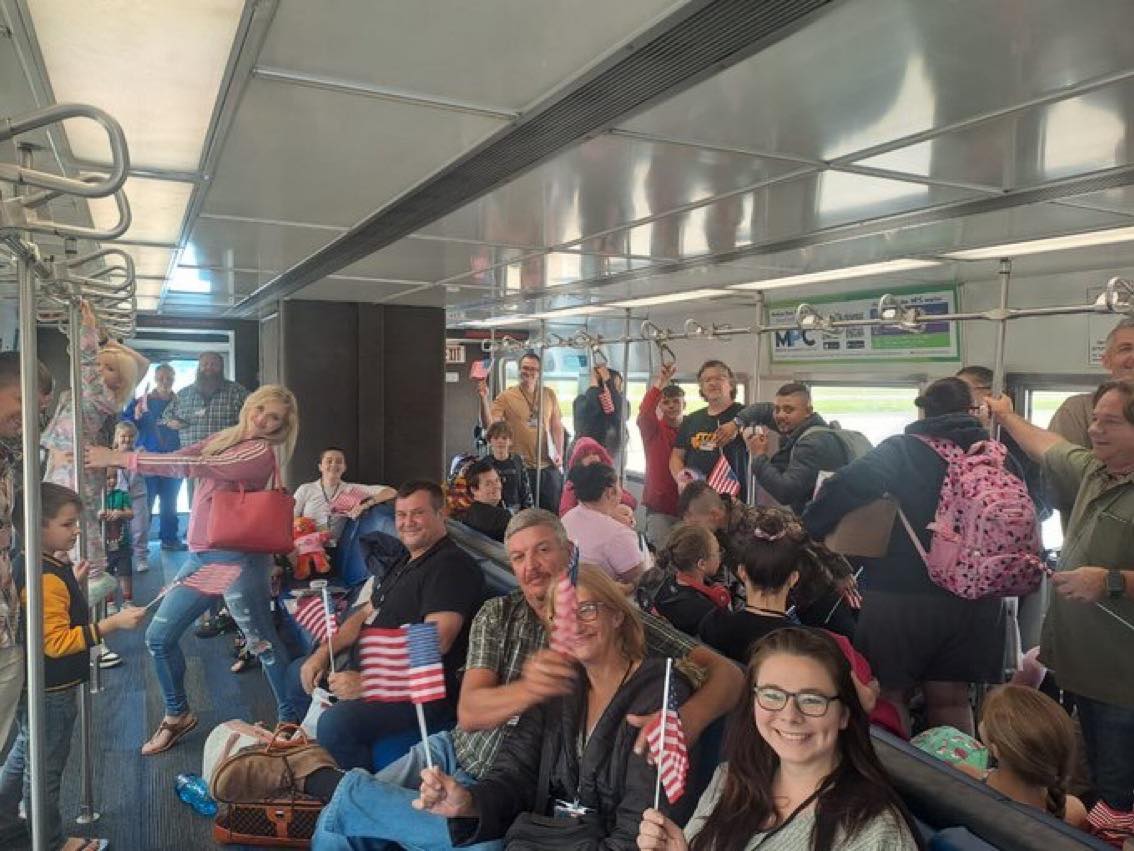
- Details
- By Levi Rickert
Opinion. The Washington Post headline from last Monday—“White South Africans arrive at Dulles as refugees under Trump order”—immediately caught my attention. The article reported that approximately 50 White South Africans, known as Afrikaners, were admitted to the United States as refugees under a humanitarian designation made possible by an executive order signed by President Donald Trump in February.
What stood out to me was the contrast in how this group, many of whom are farmers, was granted entry under humanitarian grounds, while refugees from countries such as Afghanistan, the Democratic Republic of Congo, and Sudan fleeing persecution or war have often been denied entry.
Let’s not forget: Donald Trump instituted a travel ban affecting Muslim countries, slashed refugee admissions to historic lows, caged asylum-seeking children at the southern border, and called majority-Black and brown nations “sh*thole countries.”
During his first administration, Trump consistently used scare tactics about caravans from Central America to drum up political support. He separated families under a zero-tolerance policy, and his immigration agenda became a rallying cry for white nationalists. But now, when White South Africans express fear about land reform or rural crime, suddenly the door swings open.
For years, Trump has painted refugees as invaders—unless, of course, they fit a certain mold. When the narrative shifts from fear to welcome, the distinction is telling.
It is nothing short of hypocrisy.
Trump’s executive order claimed that minority Afrikaners were facing unfair treatment in South Africa. Trump and Elon Musk, an immigrant from South Africa, have even suggested the South African farmers were victims of genocide.
The term “genocide” carries deep weight, particularly for Native Americans, whose ancestors suffered through genocide marked by war, starvation, rampant disease, and the forced assimilation of Indian boarding schools.
Calling what's happening in South Africa a "White genocide" is inaccurate, inflammatory, and dangerous. It diverts attention from real issues—like rural safety, economic inequality, and land reform—and turns them into weapons of racial fear.
What makes this even more cynical is the invocation of “farmer killings” in South Africa—a complex issue distorted into a race-based narrative by far-right outlets. Trump echoed this in 2018, tweeting about the “large-scale killing of farmers,” parroting conspiracy theories with no basis in reality. His focus was never justice; it was grievance politics.
The claim that White South African farmers are being subjected to genocide has been widely debunked by experts, human rights organizations, and crime analysts.
While South Africa does face high levels of violent crime, these issues impact all communities. In fact, most murder victims in the country are Black, not White.
If the Trump administration is truly concerned about violence in South Africa, the conversation should focus on shared safety, equitable development, and historical justice for all communities.
U.S. Deputy Secretary of State Christopher Lu attempted to justify Trump’s move to bring in the Afrikaners into our country by saying they “could be assimilated easily into our country.”
This isn’t about protecting farmers. It’s about protecting whiteness.
This justification statement for allowing Afrikaners into our country exposes the hollow core of Donald Trump’s so-called "America First" rhetoric. While humanitarianism should never be selective, Trump’s sudden interest in refugee protection isn’t rooted in compassion—it’s rooted in ideology.
The hypocrisy couldn’t be more glaring. Refugees of color fleeing political violence, climate collapse, and narco-state terror are criminalized. But White South Africans, facing vastly different circumstances and not meeting the traditional criteria of “persecution,” are offered sanctuary under the guise of shared values and civilization.
For Native people in this country, the irony runs even deeper. The descendants of settlers who seized Indigenous land are now being extended the protection of a system that has historically marginalized and exterminated others in the name of expansion and racial hierarchy.
True justice means consistent compassion. It means protecting all vulnerable people, not just those who reinforce a supremacist narrative. If Trump truly cared about refugees, he would welcome those fleeing war in Sudan, political oppression in Nicaragua, or climate disaster in the Pacific Islands. But he doesn’t.
He cares about building a nation that looks the way he wants it to look—white, nostalgic, and obedient. His selective empathy isn’t a policy. It’s a projection of power.
And for those of us who know what it’s like to be on the receiving end of systemic erasure, that’s a truth we won’t forget.
Thayék gde nwéndëmen - We are all related.
More Stories Like This
Superhuman. Should We Be Better Than We Are?Senator Ben Nighthorse Campbell Proved Representation Matters
The Lie We Keep Telling About Wounded Knee
Another Weapon of Mass Destruction
Colorado cannot heal until it confronts Sand Creek honestly
Help us defend tribal sovereignty.
At Native News Online, our mission is rooted in telling the stories that strengthen sovereignty and uplift Indigenous voices — not just at year’s end, but every single day.
Because of your generosity last year, we were able to keep our reporters on the ground in tribal communities, at national gatherings and in the halls of Congress — covering the issues that matter most to Indian Country: sovereignty, culture, education, health and economic opportunity.
That support sustained us through a tough year in 2025. Now, as we look to the year ahead, we need your help right now to ensure warrior journalism remains strong — reporting that defends tribal sovereignty, amplifies Native truth, and holds power accountable.
 The stakes couldn't be higher. Your support keeps Native voices heard, Native stories told and Native sovereignty defended.
The stakes couldn't be higher. Your support keeps Native voices heard, Native stories told and Native sovereignty defended.
Stand with Warrior Journalism today.
Levi Rickert (Potawatomi), Editor & Publisher


